Welcome to Hildene Farm in the dene. “Dene” is Old English for a valley with a stream. Nestled between two mountain ranges, the dene is at the southern end of the “valley of Vermont”, carved out by the Battenkill River Watershed.
This land was a dairy farm when the Lincoln family purchased it in 1902. Peggy Lincoln Beckwith, granddaughter of Robert and Mary, brought agriculture back to the dene.
The Educational Greenhouse was built in 2015 for propagation, vegetable growing year-round, and classes and workshops. It includes a headhouse with an office, potting and workspace area, a warmhouse that is a traditional greenhouse, heated by the sun and wood pellets, and an attached unheated coldhouse high tunnel with a soil floor. In the adjacent Education Garden and BBA Garden we grow vegetables, herbs, flowers and more using regenerative methods for Hildene events, education and community partnerships.
Hildene Farm also includes livestock and pasture, an apiary, closed loop composting, pollinator habitat, and an orchard. You can also walk the trails and visit the wetlands and floating boardwalk!
Farm Animals
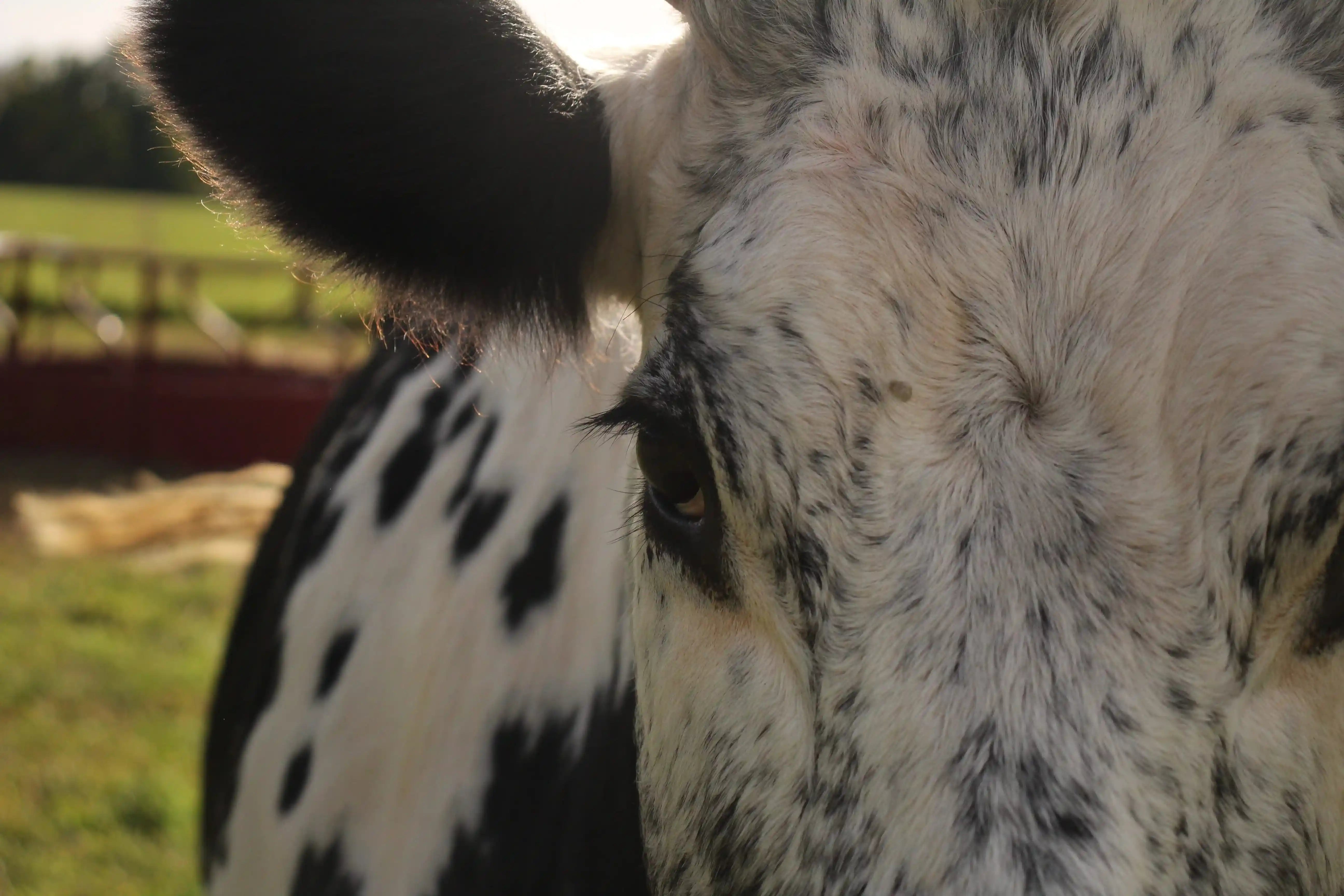
Preserving a Vermont Heritage Breed
Hildene is helping with the conservation of Randall Cattle, a rare, triple purpose breed used for dairy, meat, and as oxen. A heritage breed for Vermont, these beautiful, speckled cattle originated on a nearby Sunderland farm and are considered critically endangered.
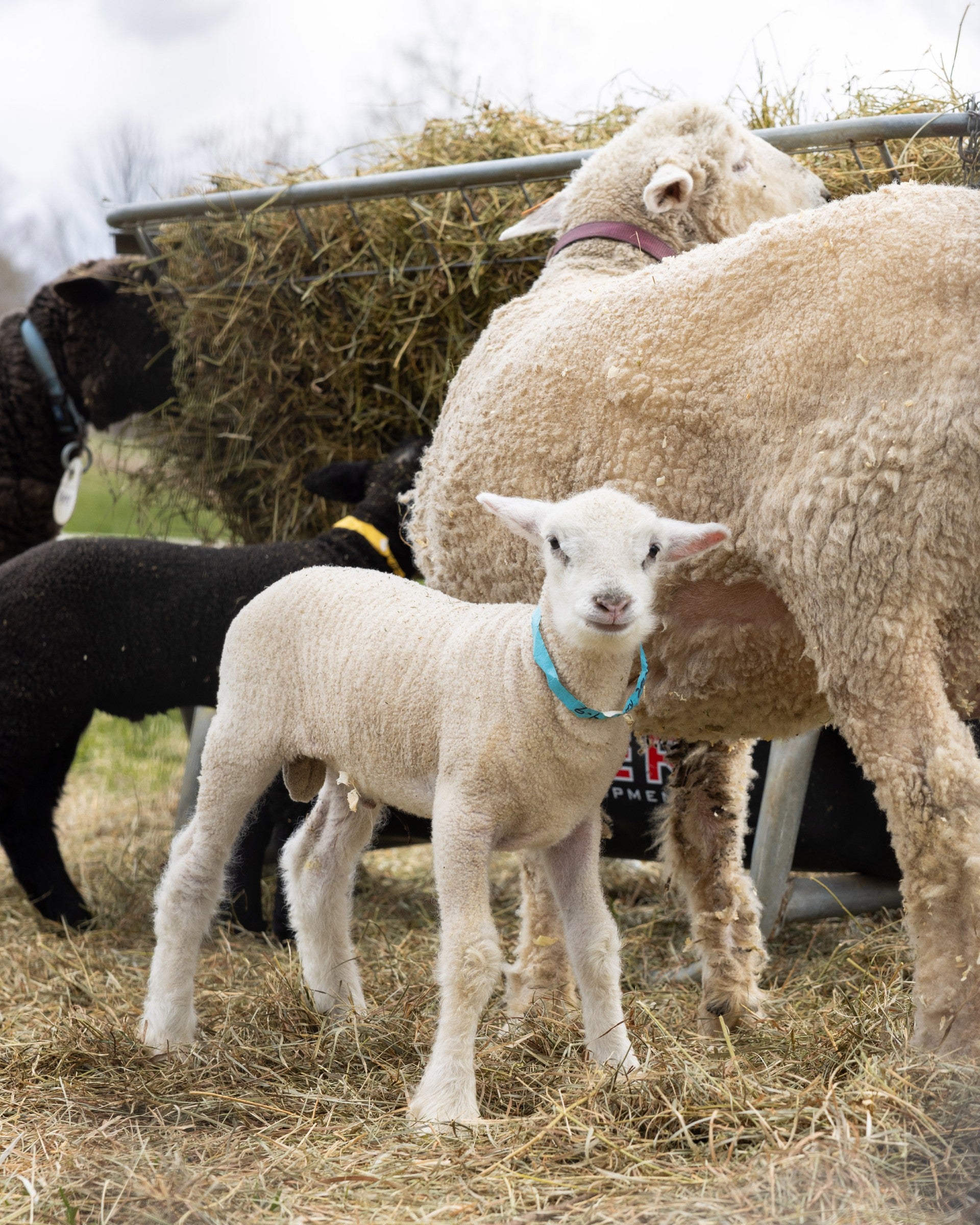
Alpacas, Sheep, Chickens & More!
Animal Farming in the dene continues today with the holistic management of or pastures and an assortment of livestock including:
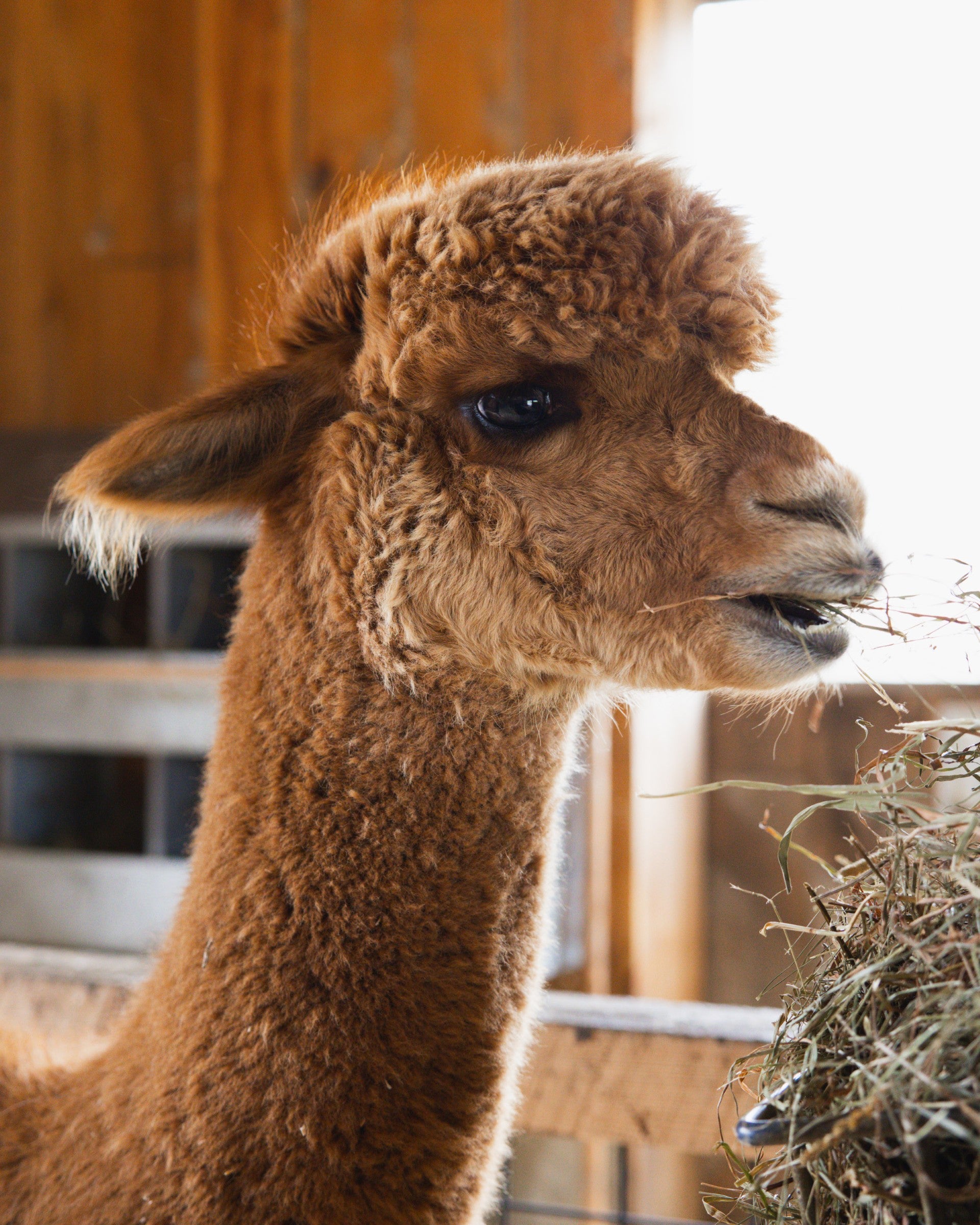
Fiber animals
Huacaya alpaca, Corriedale sheep and Angora rabbits have a home on Hildene Farm. Their fur and wool provide sustainable and local textiles for yarn, hats, blankets, scarves, dryer balls, felted soaps, insoles and felted ornaments that are sold in The Museum Store.
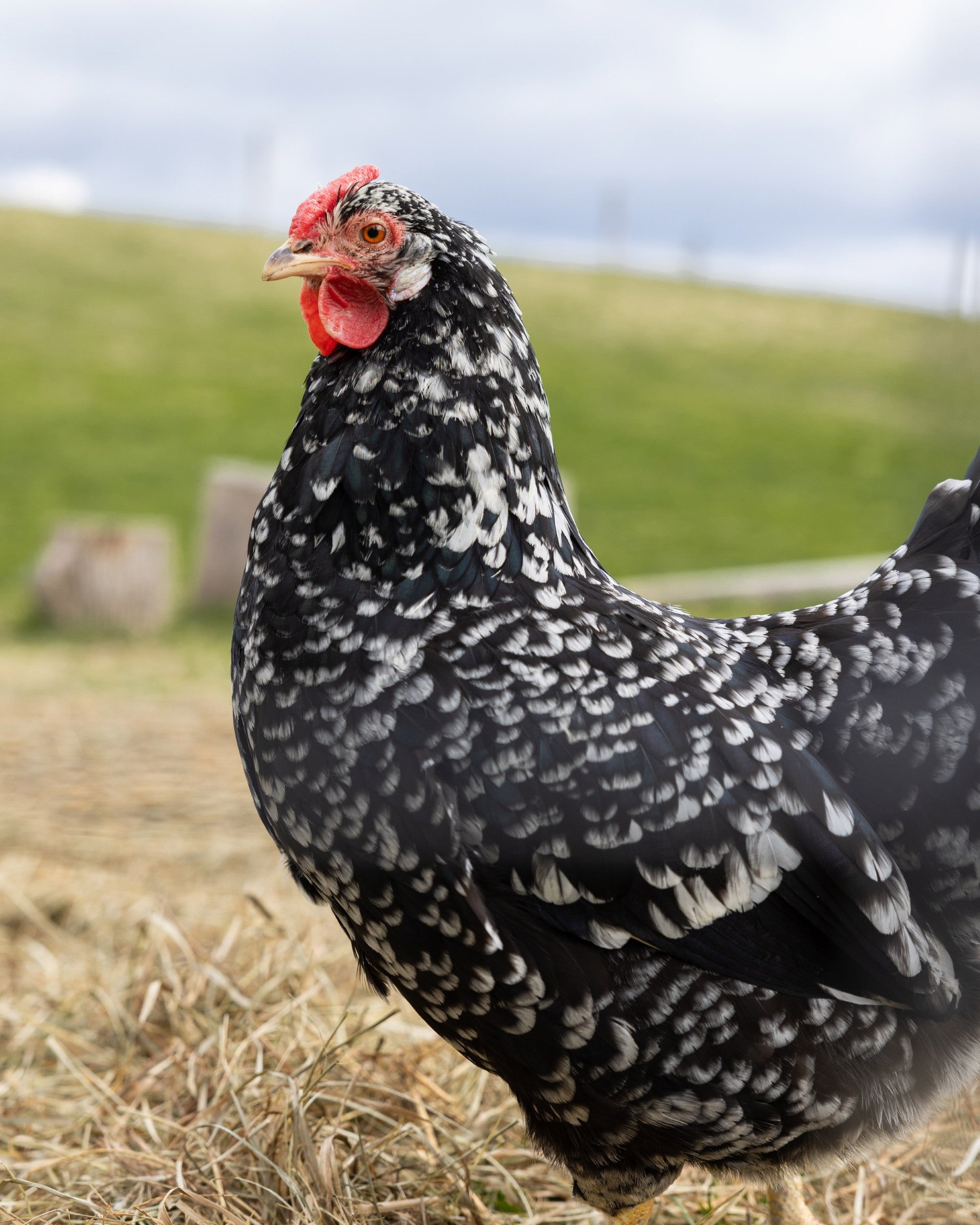
Chickens and Ducks
We raise a variety of heritage breeds and rare breed chickens and ducks. Helping with the conservation of these breeds we sell eggs in The Museum Store, to our caterers, and staff. Poultry help with pest control and fertilization of our pastures. They are a significant part of our rotational grazing program.
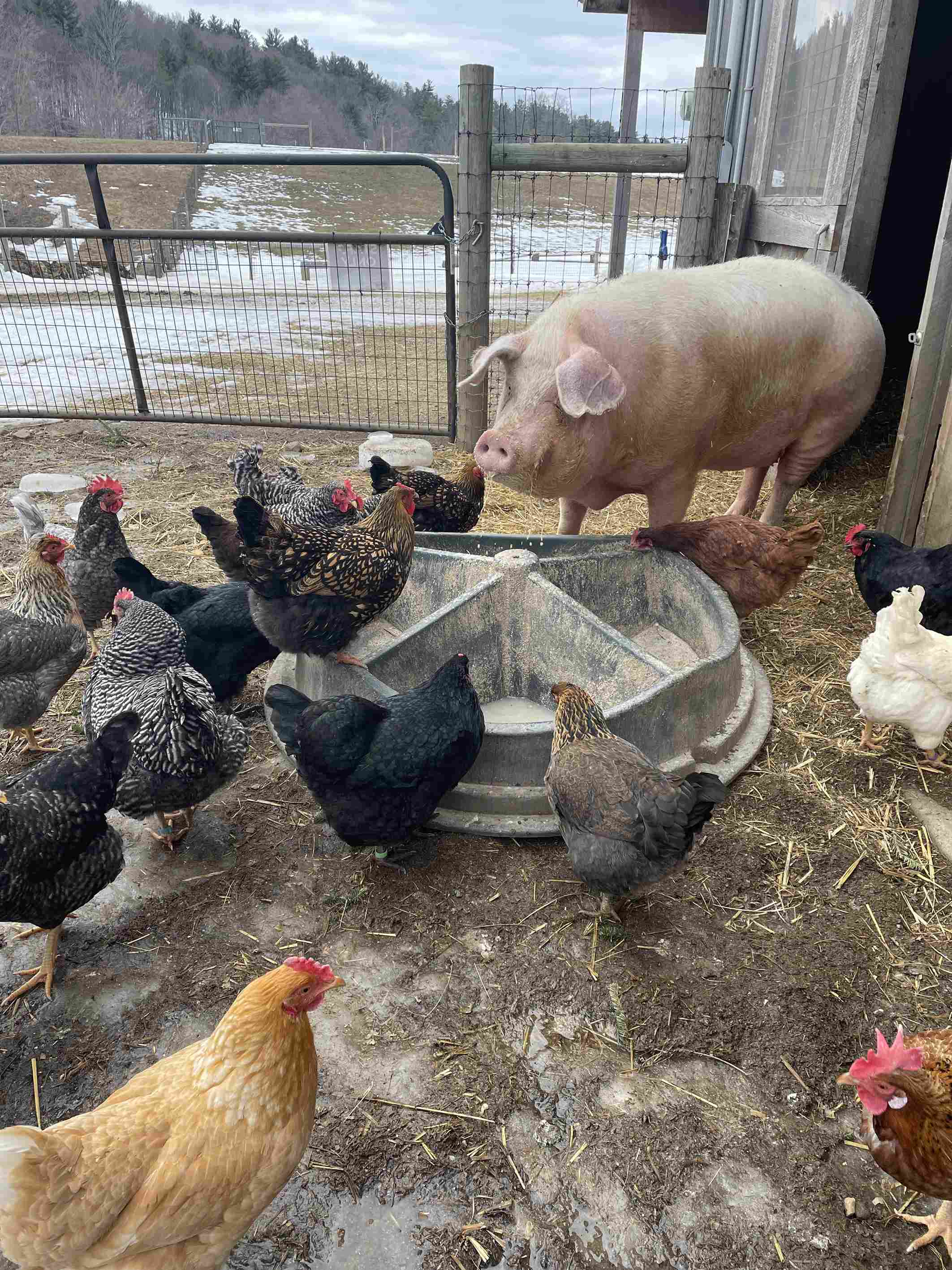
Meet "Peaches"
One rescue pig named Peaches calls the dene home. She helps regenerate compacted areas of pastures and helps educate guests about swine.
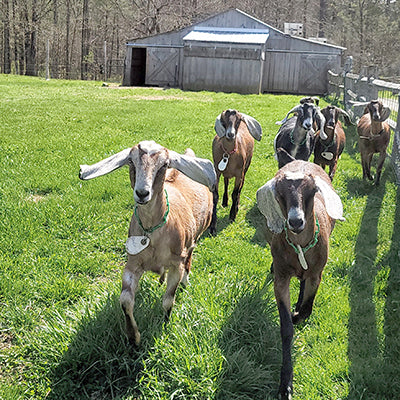
Nubian Goats
Hildene Farm's goat dairy is home to a herd of Nubian goats.
Farm Products
In keeping with Hildene’s focus on sustainability, much of what is produced is used onsite for events and is for sale in The Museum Store.
Education
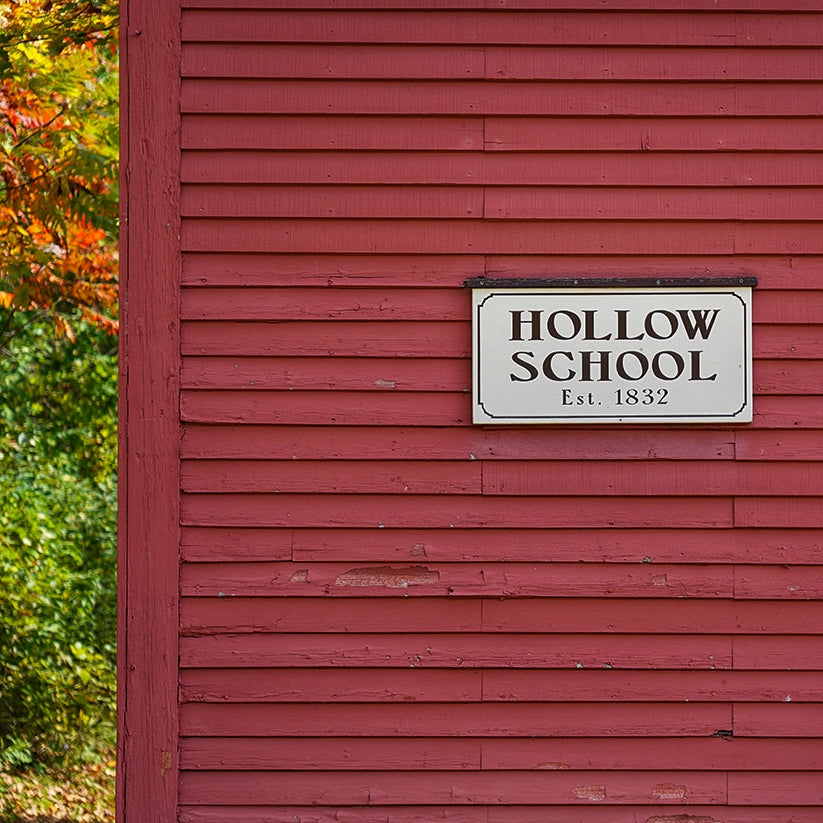
The Hollow School
Our schoolhouse, built in 1832, was one of 14 in Manchester. It is the only one that is still on its original foundation and still used as a schoolhouse. It was on the property when Robert Lincoln purchased this land. It was restored in the 1980s.
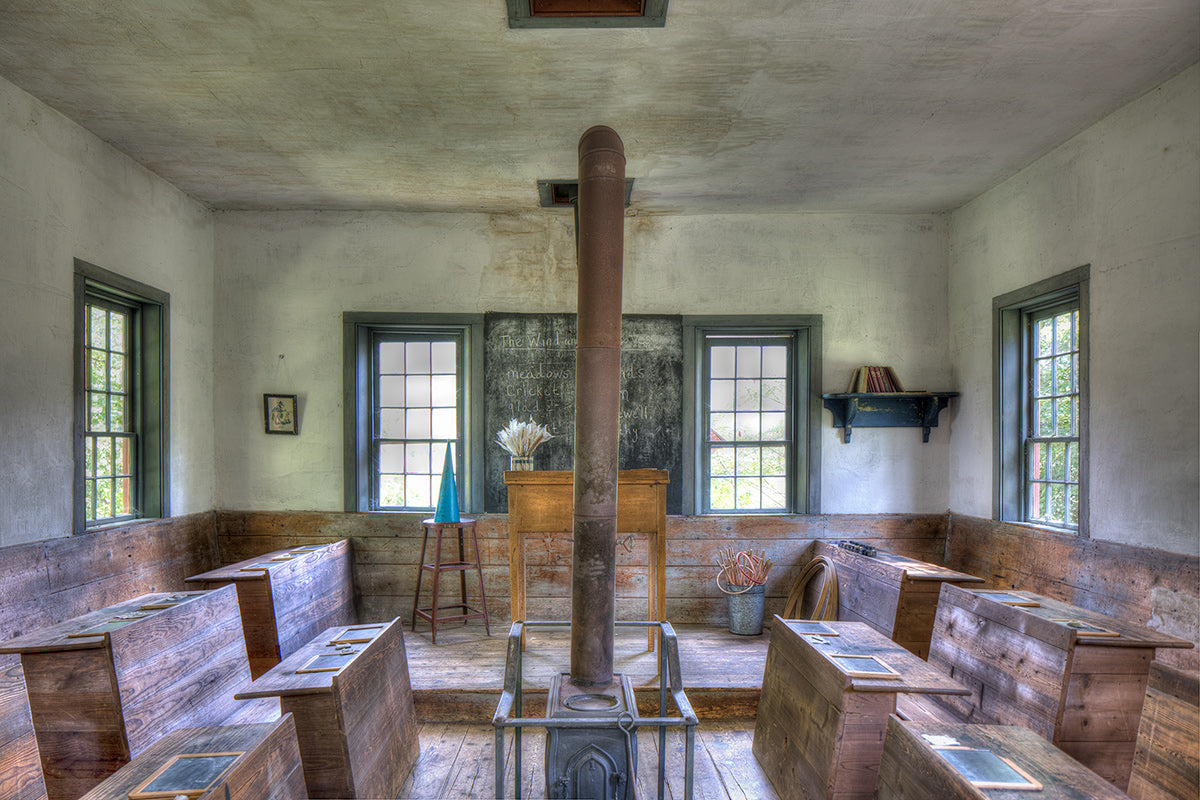
Area school children attend programs here throughout the year. They role play, taking the names of actual students who attended the Hollow School in 1862. They learn to recite, write with quill pens and with chalk on slates and then to play period games like hoops and sticks and walking on stilts.
We have over 3,500 children participate in our camps and school programs each year.
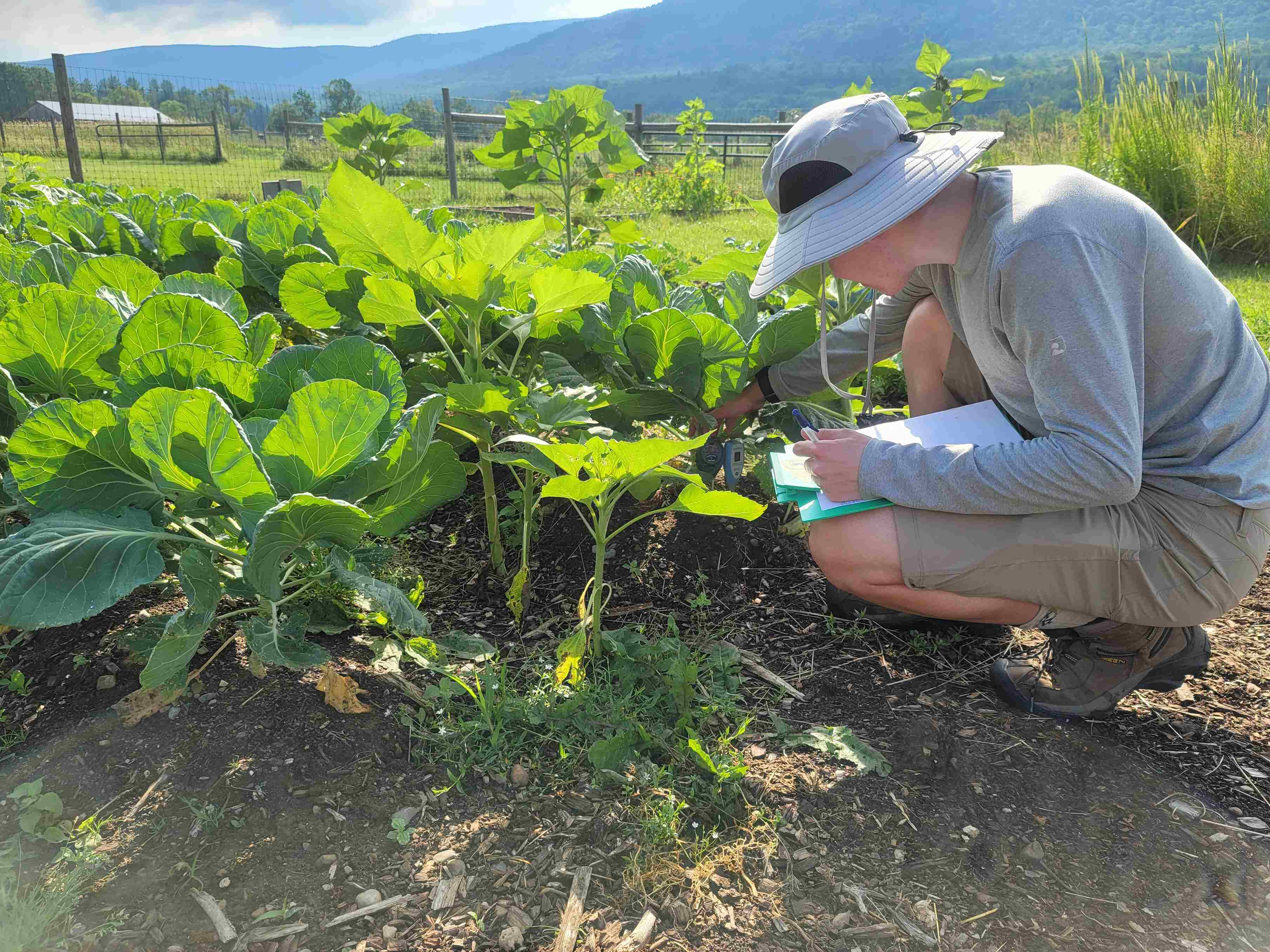
An Outdoor Classroom
High school students in the Farm and Food Studies program at Burr and Burton Academy (BBA) have the unique opportunity to learn on-site at Hildene Farm. Hildene and BBA share institutional missions that promote integrity, service, civic responsibility, and sustainability, making for a rich and meaningful programmatic partnership.
A Watershed and Wildlife Habitat
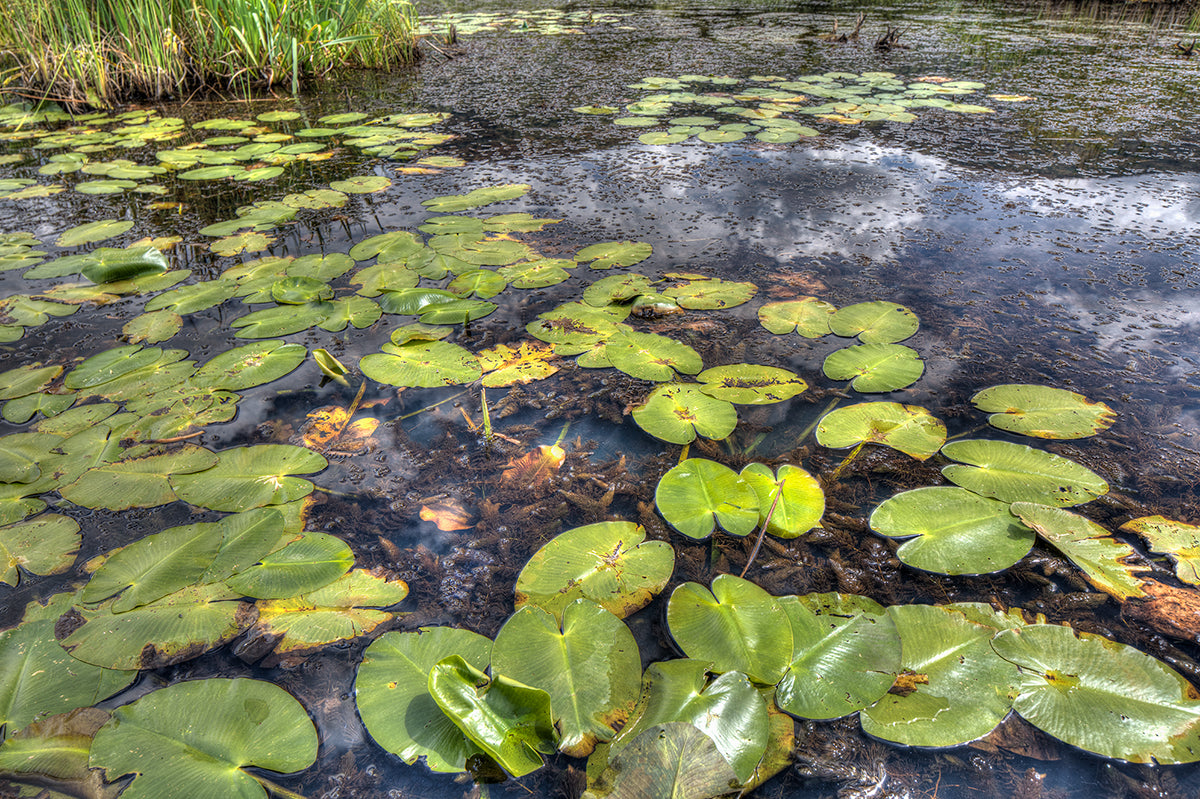
Wetlands
The wetlands that run along the east side of the dene are part of the Batten Kill watershed. They provide habitat for a variety of wildlife including birds, beaver, muskrat, and turtles.
They also absorb excess water from the river during floods. The plant life in the wetlands slow floodwaters and limit damage to the surrounding area. They are a unique and valuable part of the river system. We use them as an outdoor classroom as well, teaching school children the role and value of wetlands.
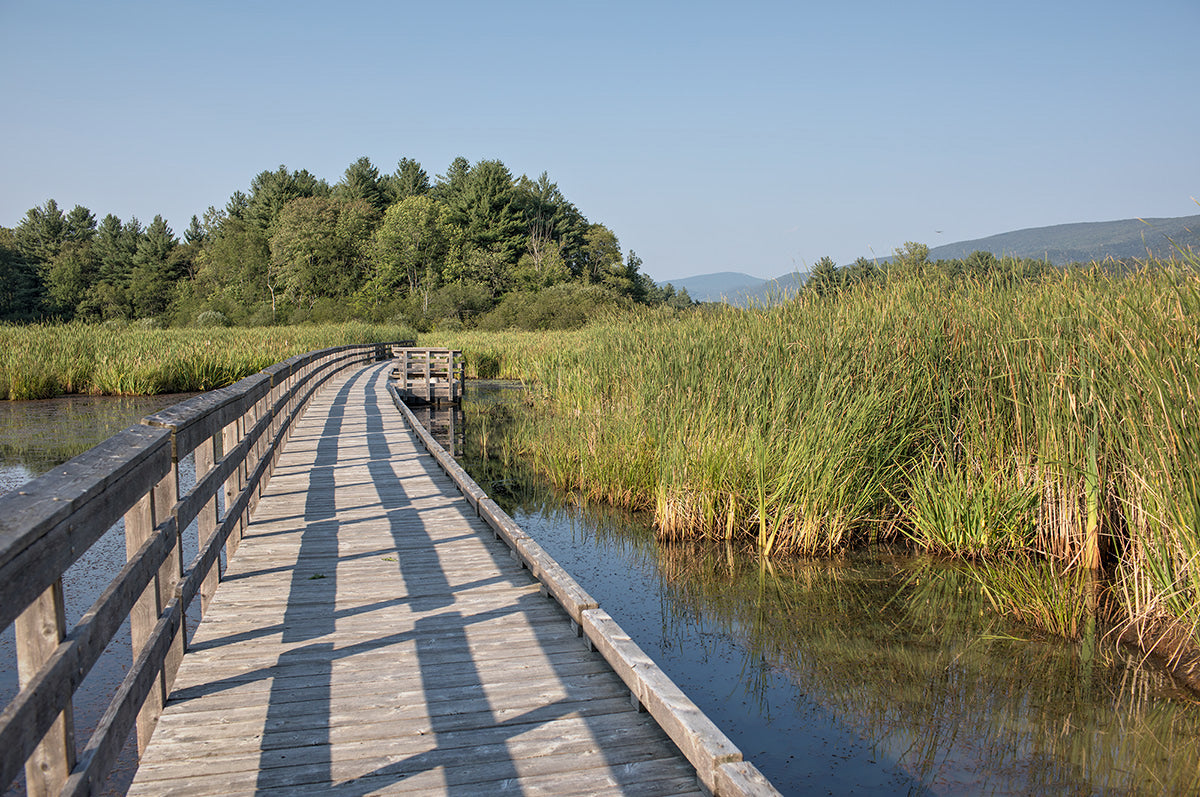
Our 600 foot floating boardwalk provides access for guests across the wetlands providing a unique opportunity to experience the middle of a wetland complex at water level. It also provides a unique lookout for some of the wildlife that make the wetland home: red wing blackbirds, box turtles, snapping turtles, blue heron and frogs, among others. The path and the boardwalk are ADA accessible.
Ecological Impacts
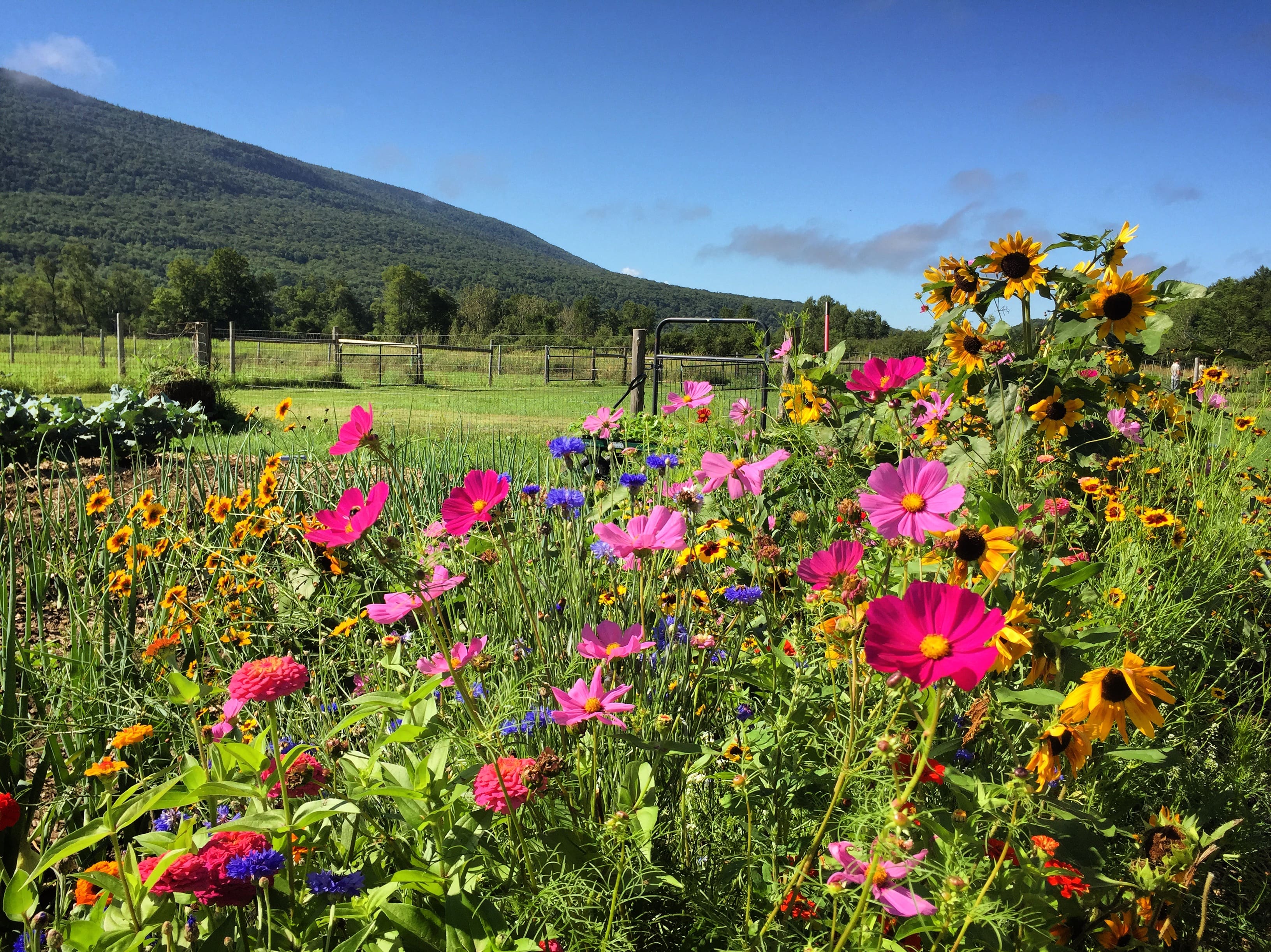
Wildlife & Pollinator Habitat
Ecological impacts are at the forefront of every decision on Hildene Farm, keeping in mind the inclusion of habitat and food sources for pollinators – the bees, butterflies and songbirds that face considerable environmental threats. For instance, not all the acreage here will be used for food crops. There are perimeter buffers of forage (called pollinator pathways), hedgerows and brush piles to provide habitat and life cycle support for these endangered species.



